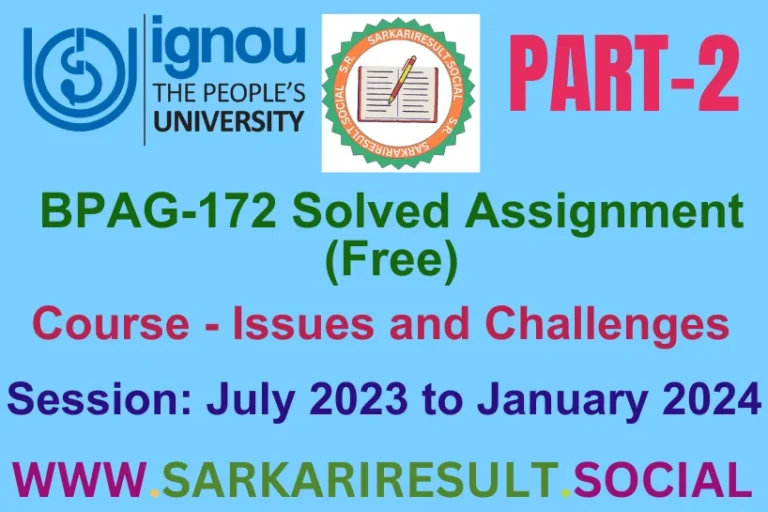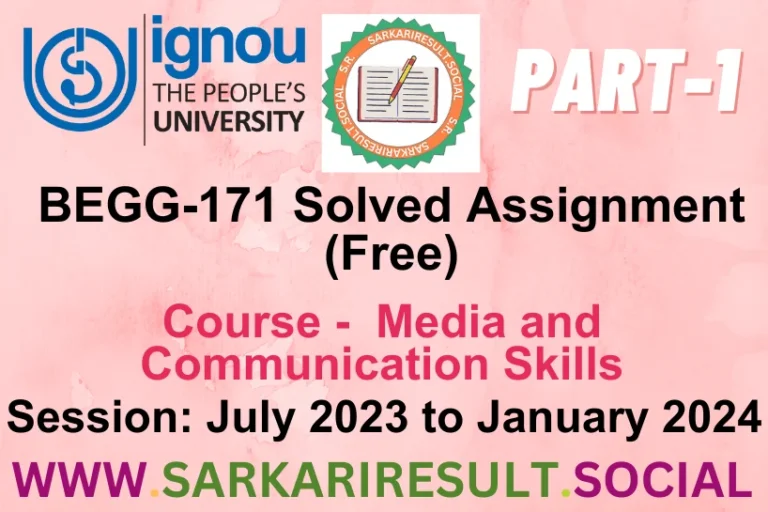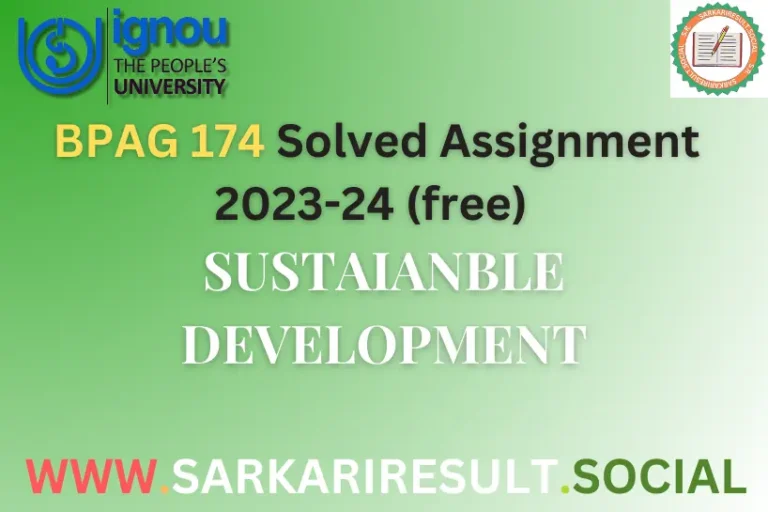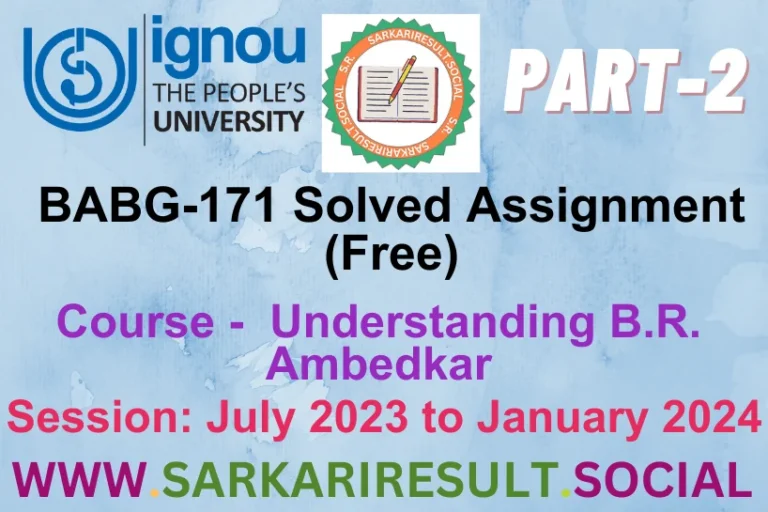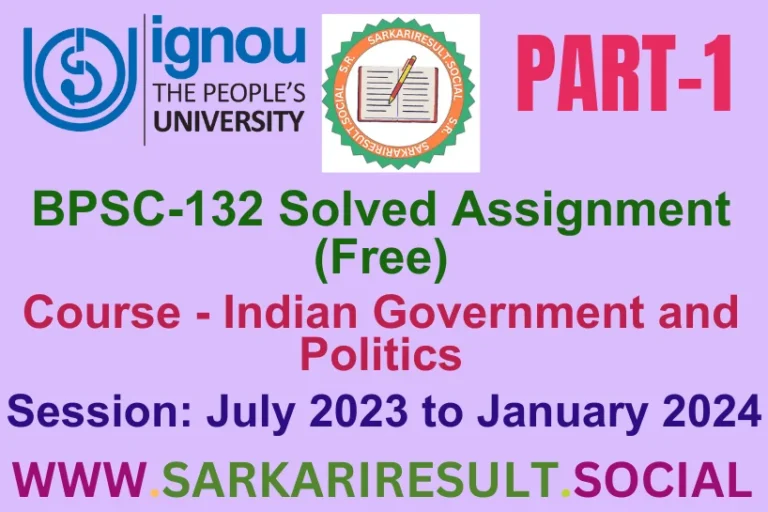BPSC 131 SOLVED IGNOU ASSIGNMENT FREE PART 3
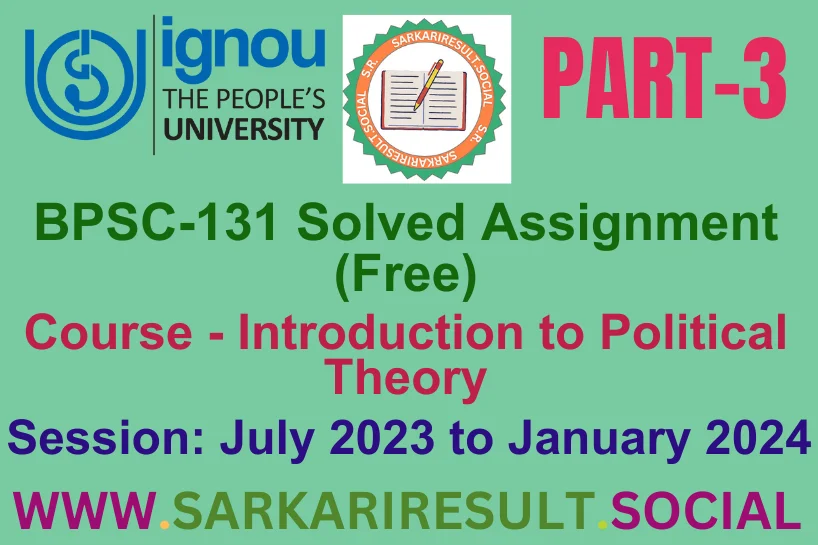
Welcome to the BPSC 131 SOLVED IGNOU ASSIGNMENT FREE PART 3 TMA. Assignment – III simplifies your approach with concise answers to five questions. In just 100 words per response, explore Human Rights, People’s Democracy, Patriarchy, determining factors of citizenship, and Civil Society. Our succinct solutions empower you to navigate these diverse topics effortlessly, ensuring a seamless completion of your assignments while gaining valuable insights into the intricacies of political theory.
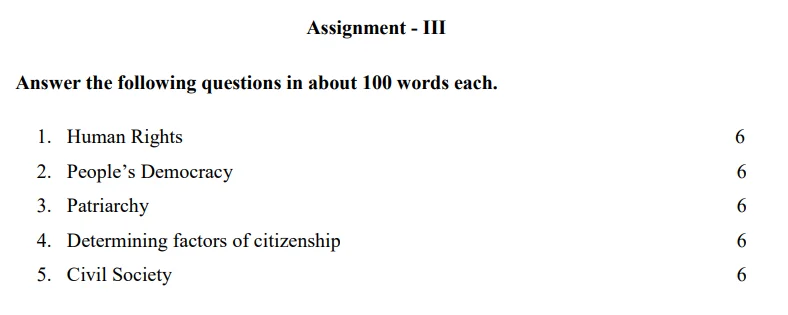
Answer the following questions in about 100 words each.
Q.6 Human Rights
Ans. Human rights are inherent, universal entitlements that safeguard the dignity and equality of individuals. They encompass civil, political, economic, social, and cultural rights. Rooted in international law and moral principles, human rights ensure protection from discrimination, torture, and arbitrary arrest.
The Universal Declaration of Human Rights articulates these fundamental rights, emphasizing the principle that all people, regardless of nationality, ethnicity, or status, are entitled to these basic freedoms and protections. Human rights serve as a foundation for justice, peace, and the recognition of the inherent worth and rights of every person.
Q.7 People’s Democracy
Ans. People’s democracy is a political concept embodying the idea of governance where power resides with the people. It emphasizes citizen participation, representation, and decision-making. In a people’s democracy, individuals have the right to vote, express opinions, and contribute to policy formation.
The system seeks to ensure equality, protection of rights, and responsiveness to the needs and aspirations of the populace. Rooted in democratic principles, people’s democracy aims for a government that reflects and serves the interests of its citizens, fostering a participatory and inclusive political environment.
Q.8 Patriarchy
Ans. Patriarchy is a social system where power is predominantly held by men, shaping societal structures and norms. It involves the concentration of authority, privilege, and decision-making in male hands, often at the expense of women. Patriarchal systems perpetuate gender inequality, dictating traditional roles and expectations.
This can manifest in various aspects of life, including family, work, and politics. Overcoming patriarchy involves challenging and dismantling these ingrained power dynamics, promoting gender equality, and acknowledging the value and agency of all individuals regardless of their gender.
Q.9 Determining factors of citizenship
Ans. Citizenship is determined by several factors, including birthplace, descent, marriage, and naturalization. Jus soli grants citizenship based on place of birth, while jus sanguinis confers it through descent.
Marital connections and naturalization, a legal process, also influence citizenship acquisition. Additionally, factors like residency, allegiance, and adherence to legal requirements play roles in determining citizenship. Each country has its specific criteria, reflecting its values and policies regarding who qualifies as a citizen, emphasizing a combination of legal, familial, and territorial considerations.
Q.10 Civil Society
Ans. Civil society refers to a diverse range of organizations and associations that operate independently of the government, working collectively to advance common interests and address societal issues. It encompasses non-governmental organizations (NGOs), community groups, and advocacy organizations.
Civil society plays a crucial role in fostering democracy, promoting human rights, and addressing social challenges. It acts as a voice for citizens, facilitating civic engagement, and holding governments accountable. Through activities like advocacy, research, and community development, civil society contributes to shaping public policies and promoting a vibrant and participatory society.
Also See This: BPSC 131 SOLVED IGNOU ASSIGNMENT FREE PART 1

